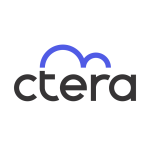What is our primary use case?
Our primary usage is as a repository for the application servers. It's mostly for NFS, with very good replication options and backup features. There are also tools that we need to put there and replicate between our on-prem and AWS locations.
How has it helped my organization?
We tried to use EFS, for example, but one of the cons of EFS was that the performance was degraded once we had a lot of files and very large storage. It took it a while to handle everything. Also, backing up was harder and we needed a third-party. With NetApp it's much easier. Performance is very good and there was no need to change our environments, our speeds, or our automation because we have NetApps on-prem as well. When you have 100,000 files on smaller volumes, or you have bigger volumes with millions of files, it's almost impossible to work with EFS. With NetApp we didn't even feel it. It's all flowing really well.
What is most valuable?
The snapshot ability we're using is very good, SnapMirror. For example, we have a vault account and we can SnapMirror our volumes to that vault account. It has a NetApp that sits on it as three buckets and acts as our offset backups.
The FlexClones make all the management easier for us.
What needs improvement?
They're making the right improvements right now. The only issue we had lately was that outside our VPC we could not reach the virtual IP, the floating IP. I heard that they have fixed that as well. That's a good advantage.
For how long have I used the solution?
We've been using it for two years already.
What do I think about the stability of the solution?
The stability has been very good. The only time that it was down was because someone took the machine down. That was in the beginning and then we fixed the permissions. But it wasn't an issue on NetApp's end that caused the system to go down.
What do I think about the scalability of the solution?
Both performance and scalability are really good. We started with a small system but have grown really fast. We needed to change the type of system and the license. We were able to do that online with no issues. Doing so, and going with the bigger type of system, also gives us better performance.
So if you need more performance, you can always change the type of system. Working with NetApp, they provide us with a consultant, if needed, to determine what the best type of system is for our use case, based on the performance that we need. They're flexible.
We're growing all the time. We have several sites already and we're adding more sites when needed. We are keeping the on-prem as well because it doesn't always make sense to move to the cloud. It depends on budget, the CapEx and OpEx. But we are growing.
How are customer service and technical support?
The support has been great. Every time we've had a question or something that we didn't know how to do, a setup issue, they have helped us. There was one time that we set up a new one on a new version and there was a small bug that was fixed really fast. It wasn't within how the system functions, it was a bug in the deployment part. They helped us really quickly and we were able to manage that as well.
Which solution did I use previously and why did I switch?
There was a lot of downtime with our previous solution. Also, the performance wasn't what it should be. Any update that we did required downtime, and there were quite a lot of updates because there were a lot of bugs. That's where Cloud Volumes ONTAP is very good because they're using the same software as in their devices. There are no special needs or special bugs. They're using a very mature a solution.
How was the initial setup?
The initial one we set up was more complex until we understood the parts. There is a manager that is doing everything for you, but you need to know which IP, what are the prerequisites, etc. It took a while to understand that. But once we did the first one, it became very easy to deploy. My team can now do it in one or two hours, with all the integration that we need.
In terms of an implementation strategy, we get the requirements from the business. Whenever we need a new environment, for example, my team sets it up really fast. We can set all the configuration like any other systems we have: with our monitoring tools, the backup, snapshots; everything the same way. It's easy to manage and replicate things to look the same.
Migration was pretty easy. We could use SnapMirror or we could use NetApp's XCP Migration Tool. That was pretty awesome. It replicated the data faster than any other tool that I've seen. That was a big help.
For deployment, there are two guys from my team who work together. Of course, we have a network guy setting up all the network stuff, and there's the cloud team that is doing that part of the configuration. Once we have all the prerequisites, they can set it up really fast.
For maintenance, it requires less than one person. We have a small group, about eight people for 150 systems, which manages systems worldwide, not just on the cloud but also on-prem. It's part of managed systems and it's being managed with the management tools. We don't see that as something where we need to add more people if we add another system.
What about the implementation team?
We used a third-party, mostly for the cloud itself, for the VPC configuration, the environment-related stuff that my company uses. But we did not use one for NetApp itself.
What was our ROI?
Since we're a SaaS business, we need to have stable environments for our customers. We can't have downtime every week or so. Stability is very important for us, as well as a guarantee that data is being backed up. If someone, even by mistake, deletes something, there is a way to recover it. Stability, availability, performance, all these kinds of things, mean we're eventually getting more customers and more satisfied customers.
What's my experience with pricing, setup cost, and licensing?
We've been working with NetApp on pricing. They allow a special price if you are working closely with them. Since we have a lot of NetApp systems, we got some kind of discount. That's something they do for other customers, not just for us. The price was fair.
In addition to the licensing fees, you're paying Amazon for your usage, the instances, the storage. It's using EBS drives or S3 buckets. So there are all the Amazon fees that you usually have. But overall, we compared the price we have with NetApp and the price for going with DFS and there was a difference, but it was worth the performance, stability, and to have the capabilities NetApp has for doing backups. All these features are covered.
What other advice do I have?
It's NetApp. It's what we know. Our NetApp on-prem has been really good, so we continue to maintain that.
There is a 30-day trial that you can use to get a feel for it. You can work with NetApp in case you have questions in deploying it. They're helpful with that. If you're planning big, to deploy in several sites or a few systems, and you have plans for the future, you can always talk with NetApp and work on getting the right price for you and what makes sense. It depends on your growth and how big your footprint is. They will help you, of course.
I would rate it between nine and ten out of ten. I don't have any complaints. Maybe it could be cheaper but as for how it functions, it's really doing what it needs to do.
Disclosure: PeerSpot contacted the reviewer to collect the review and to validate authenticity. The reviewer was referred by the vendor, but the review is not subject to editing or approval by the vendor.














